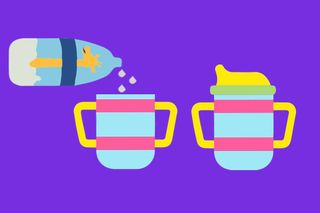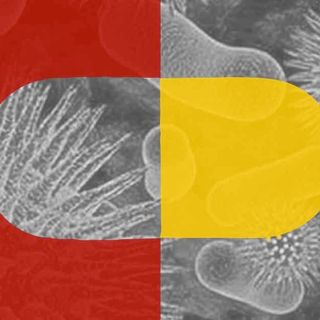
Kids’ Health Drinks: An Unnecessary, Rs.600 Crore Business
The commercial unfolds a scenario that has played out in homes all across the country: A young child refuses to eat his food to the consternation of a parent understandably worried over his health and development....

The commercial unfolds a scenario that has played out in homes all across the country: A young child refuses to eat his food to the consternation of a parent understandably worried over his health and development. What to do with such a fussy eater? Give him a health drink, of course – in this instance, PediaSure.
PediaSure, the ad goes on to explain, promotes growth, brain development and immunity. Indeed, all of these nutritional drinks for babies, toddlers and kids – Horlick’s, BournVita, Protinex, Enfasure and more – make the same claims. They seem like the answer to a harried parent’s prayer; perhaps they are.
They also happen to be complete bunk.
An unnecessary drink
“There’s nothing that supports that [claim],” says Dr. Firoza Bhabha, a Mumbai-based pediatrician. “They’re not necessary at all. If you give a child a healthy, good diet — maybe supplement with calcium — you don’t need much more.”
It’s not just one pediatrician’s opinion. A new study looking into the claims made by these so-called healthy drinks for toddlers has found “all product labels made claims related to nutrition and health, and many made claims about expert recommendations that may lead caregivers to believe these products are necessary and healthy,” explains Jennifer L. Pomeranz, a professor of public health policy and management at NYU College of Global Public Health and the study‘s lead author. “In fact, they are not recommended by health experts, as there is no evidence that they are nutritionally superior to healthy food and whole milk for toddlers.”
Instead, these drinks, marketed for young children from 9 months to 3 years old, are markedly less nutritional, often including corn syrup, sugar, or other added sweeteners, vegetable oil, and more sodium and less protein than cow’s milk.
“All of these things aren’t necessary,” Bhabha says. On top of this, she says, many of these drinks often contain cocoa, a common allergen.
Perhaps unsurprisingly, in the dark corners of the mommy-web, are forums filled with frantic parents seeking advice for their children’s adverse reactions after having consumed healthy drinks. Some reactions are attributed to the powdered dairy base; others to corn syrup. Most agree they never saw the gains in growth they expected.
“my daughter is 2 1/2. she is currently not wanting to eat beyond a bite here and there…. she did gain some weight, around 2 1/2 pounds. not as much as her ped had hoped for but i think it was because of the diarrhea,” writes one mother in an online forum. “the day after we started her on it, she had the runniest, foulest diarrhea and it was causing a horrible rash=( we tried every flavor…no change. we felt like we hit a wall.”
But a big, big business
These are the parents, in India, that drink brands are aiming to reach. Per a 2014 report by The Economic Times:
“Mere paas maa hai,” says Amal Kelshikar, general manager of Abbott Nutrition International, (India), bursting into laughter, as he recalls the famous line from Amitabh Bachchan-starrer Deewar.
Toddler health drinks were a Rs. 600 crore business in India in 2014 – a business growing at twice the rate of the broader Rs. 5,000 crore healthy drink industry. PediaSure is the largest player among the urban market, closely followed by Horlick’s. The younger brand is a bit of a wunderkind compared to the British-brought standby, and most in the industry credit its success to marketing that targets urban mothers of fussy eaters who understand and care about nutrition.
“Our word of mouth is very strong. Parents saw us solving problems rather than just showing how to add powder to milk,” Kelshikar says in the same article.
This may well be true. Despite the fact that PediaSure and its competitors don’t live up to their nutritional and developmental claims, they have locked onto an ordeal nearly all of the 17.3 million urban, Indian households with toddlers go through – and want to get through as quickly as possible. Dealing with fussy eaters takes time and effort – two things in short supply among urban Indian families in which, increasingly, both parents work and live without the support of close relatives. If a child’s health drink gets a family through a meal, and nutrients into a kid who spurns normal eating, then maybe it’s worth it. It’s precisely in this ease that the danger – and profit – lie.
Every once in a while, “it’s not going to harm,” Bhabha sums up these nutritional drinks for kids. But “one would rather not give these things than give it.”
Liesl Goecker is The Swaddle's managing editor.
Related


Forgotten Antibiotic Surfaces, Offers Hope Against Superbugs
